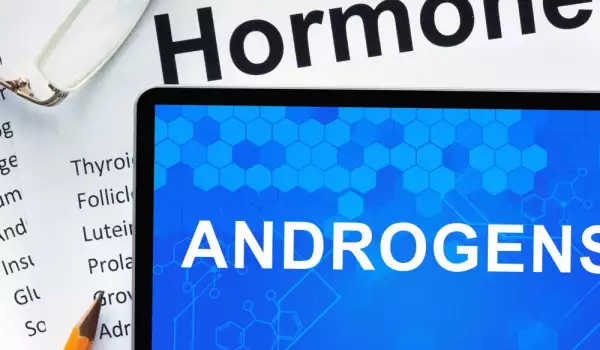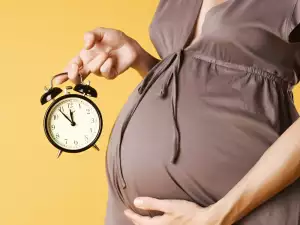Androgen is a hormone secreted by the adrenal glands that stimulates the activity of male sex organs, while also aiding the development of male secondary sex characteristics. The best known androgen is testosterone.
Testosterone is exceptionally important for the development of male secondary sex characteristics, such as the formation of the Adam's apple, increases in muscle mass, libido stimulation, hair growth and increase in penis size.
Types of Androgens
Besides the well known testosterone, there are several other types of androgens. The 1st is the steroid hormone dehydroepiandrosterone, which is synthesized by the adrenal cortex. It is also the main substance which produces natural estrogens.
The next type is andro testosterone which is derived from progesterone. Like testosterone, it has a masculinizing effect - it provides male characteristics but to a much smaller degree. It is found in almost equal amounts in men and women.
Androstanediol is a steroid metabolite and is the main participant in the secretion of androgen. Dihydrotestosterone is a metabolite of testosterone but has a stronger effect than it. It's produced in the reproductive tissue and the skin.
The last type is androstenedione, which is produced in the testes, ovaries and adrenal glands. Estrogen is produced thanks to it.
Functions of Androgens
The primary function of androgens is to control and stimulate signs of masculinity. Androgen is present in all vertebrate organisms. Through a complex biological journey, it links up with all of the corresponding androgen receptors in the body. Androgen was first discovered in 1936.
Use of Androgen
Androgens are also known as anabolic agents. They are used in pharmacology as hormonal medications, used mainly by athletes to boost their strength, speed, agility and endurance.
High Levels of Androgen
High levels of androgen affect the psychological, as well as the physical state of a person. Physical manifestations include acne on the face and back, oily skin, excessive hair growth.
Psychological effects are linked to a quick-temper, the inability for self control. The levels of androgen influence behavior due to neuron sensitivity. It is androgen that helps regulate libido and aggression.

Use of certain steroids and drugs can stimulate the production of excessively high levels of androgen, thereby disrupting its normal levels.
In such cases, hormone balancing substances need to be taken, ones that neutralize and help the process of androgen intake, so there's no undesired side effects.
High levels of androgen in women manifest in endocrine imbalance such as acne and hirsutism. Excessive secretion of androgen lowers the function of estrogen, which causes amenorrhea and suppresses ovarian function.
These types of women suffer from obesity, excessive hair growth on the body and even the presence of male characteristics. High levels of androgen can cause polycystic ovary syndrome and infertility.
Androgen Deficiency
The primary symptoms of androgen deficiency in men's bodies include low bone density or outright osteoporosis, decreased libido and problems with sexual functions. Reduced energy levels may also be a symptom of a similar deficiency.
There are different possible causes of androgen deficiency. The most commonly seen ones are alcohol abuse, hemochromatosis, infections in the area of the testicles, radiation exposure, taking corticosteroids.
Finding proof of the problem is done by means of a blood sample but testosterone levels vary throughout the day, meaning that a single test would not be able to find the cause of the deficiency. Another factor contributing to the difficulty in finding the deficiency is that many other health problems share the same symptoms.
Based on studies, just 1 in every 9 men takes measures against the problem of low levels of the hormone, the reason being that they don't even suspect the existence of the problem.
Androgen and Prostate Cancer
An important part of treating prostate cancer is suppressing the synthesis of male sex hormones, the main goal being to limit the development of cancer cells. This is a treatment known as androgen deprivation therapy.
Androgens have the ability to stimulate the growth of cancer cells, which is why the treatment is focused on decreasing male sex hormones. This therapy does not treat cancer on its own but is used to help the main treatment.
Androgen deprivation therapy has numerous side effects such as fatigue, weight gain, depression, anemia, osteoporosis, hot flashes and impotence, growth of the mammary glands.
This article intends to be of an informative nature and does not replace a consultation with a doctor!












Comments